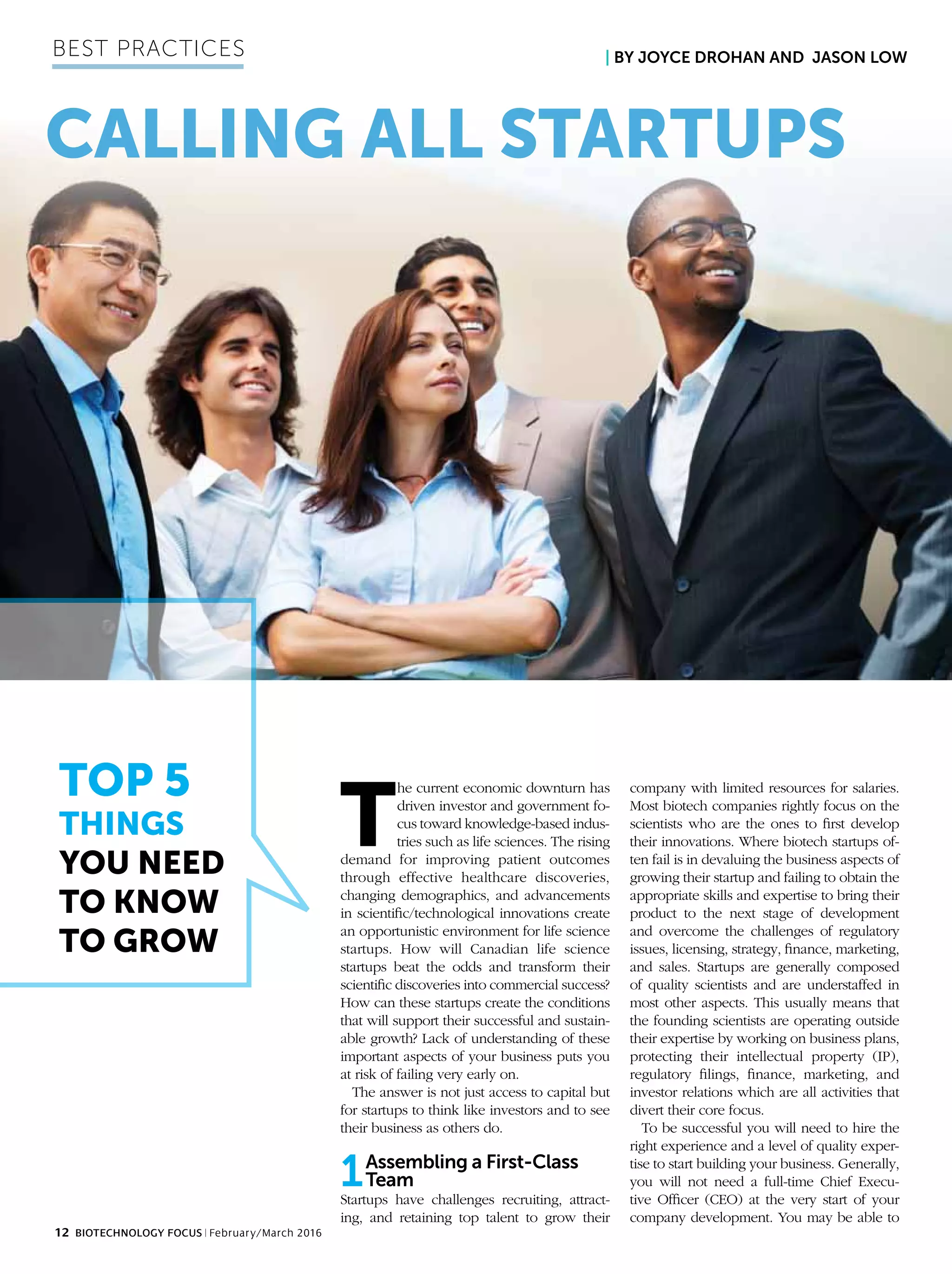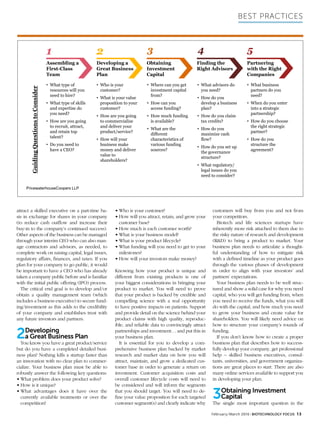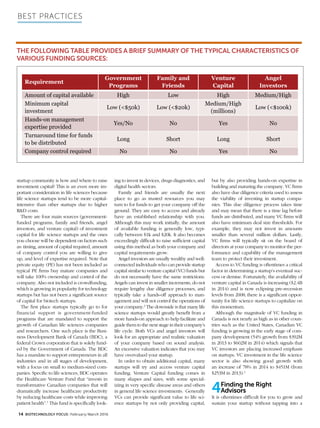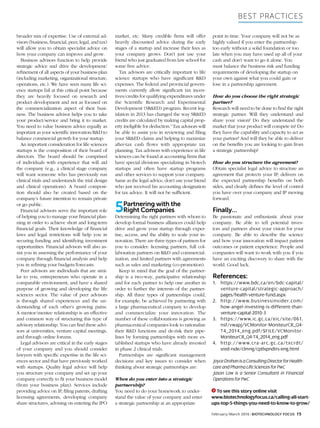This document provides advice for life science startups on growing their business. It discusses 5 key things startups need to know: 1) Assembling a first-class team, including potentially hiring a part-time CEO and contractors to fill other roles. 2) Developing a great business plan that addresses customer needs, competition, funding requirements, and return on investment. 3) Obtaining investment capital primarily from government programs, friends/family, angel investors, or venture capital depending on funding needs and company control. 4) Partnering with the right strategic companies to commercialize products and services. 5) Finding the right advisors to help with areas like business plans, funding, legal/regulatory issues.



